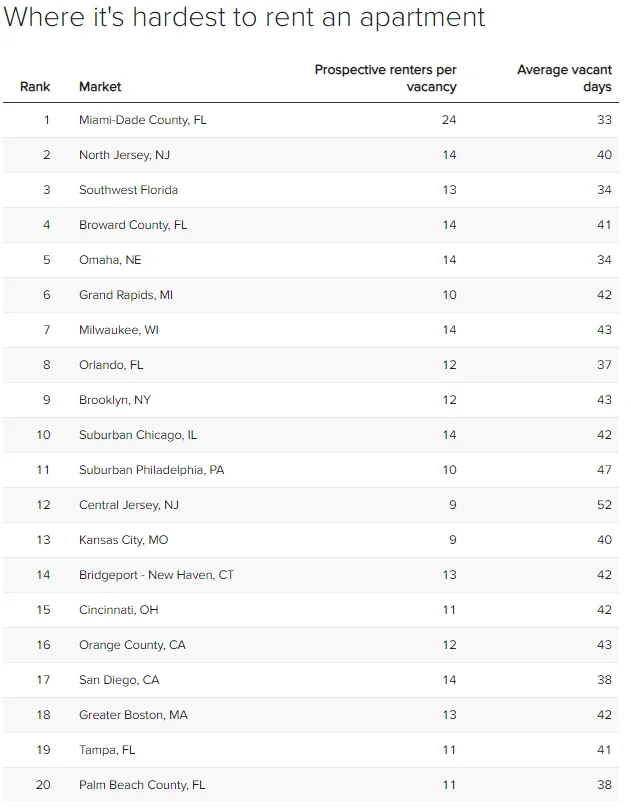Investors with a single rental property often self-manage, but for those who have multiple properties, it’s only a matter of time before they’re Googling “How much do property managers charge?”
Collecting rent and maintaining a single property is challenging enough, but when you tack on one, two, or more on top of that? It’s going to be a lot of work and will take up a lot of your time. Time that could be used searching for your next investment!
Property managers are like a real estate investor’s right-hand man because they can make sure your rental property is taken care of, always occupied, and the rent is collected on time. With all that they do, are they worth their salt?
How Much Do Property Managers Charge: The Basics
Property management fees are usually structured one of two ways: a flat fee each month or a percentage of the rent they collect.
Percentage of the Collected Rent
Generally speaking, property management companies will charge between 8% to 12% of the monthly rent for each property they manage. So, let’s say you have a property manager overseeing one of your rental properties with a rent of $1,500 per month.
You can expect to pay them between $120 to $180 each month. If they’re managing multiple properties for you, you’ll multiply that figure by the number of properties.
Word of caution: You’ll want to read your contract very carefully to make sure that it says “percentage of collected rent” and not “percentage of rent due.” If the contract says “rent due,” that means you’re going to have to pay the fee, regardless if the tenant pays rent or not.
Monthly Flat Fee
Property management companies who provide services on a monthly flat fee structure will typically start at $100 per property per month. There are a variety of factors that are taken into consideration when they’re determining how much you’ll be charged. These factors will include the type of property they’re managing, square footage, services required, and the local market itself.
Word of caution: If the property management company offers a fixed flat fee, they may not be on the ball when there’s a vacancy that needs to be filled. After all, they get their money regardless if the property is occupied or not.
Pay-As-You-Go Fee Structure
There are property management companies that will offer a pay-as-you-go (also referred to as “per project” or “a la carte”) fee structure where you’re charged for the services performed during that billing period. For example, the property management company will charge a lower rate on the months when they only collect the rent.
When there’s a maintenance issue, the lease needs to be renewed, or start the eviction process, you’ll be charged more for each service.

Other Property Management Fees
Wouldn’t it be nice if that property management fee you’re paying each month covered everything that a property manager does? Unfortunately, along with the monthly fees, there are a few other standard property management fees that you’ll be charged.
Initial Setup Fee (One Time Only)
Property management companies will charge you an initial setup fee (it can range between $250 to $500) so that they can create and add your account to their bookkeeping system. They’ll also open a bank account in your name and some will even help you obtain any licenses your state requires.
Property managers also use this fee to help cover the initial costs of managing your property. This will include having your property inspected to make sure it’s safe to rent, drafting landlord agreements, and notifying tenants (if the property is occupied) that they’ll be managing the property for you.
Leasing Fee
If your property is unoccupied, the property management company will have the challenging task of finding tenants. That means they’ll have to market your property, screen potential tenants, draft leases, and so on. Depending on the market, a vacant property could receive between 8 to 23 applicants, it’s needless to say that property managers have their work cut out for them!

Credit: CBS News
It’s up to the property management company how much they’ll charge for placing tenants. Most commonly, property managers will charge between 50% to 100% of a month’s rent, but sometimes it can be a flat fee.
Late Payment Fee
Most landlords charge their tenants a late fee (usually 5% of the monthly rent) when their tenant doesn’t pay their rent on time. All of the money that your property management company isn’t going to be extra money in your pocket.
The property manager may keep up to 50% of the late fee because they’re the ones that have to contact the tenant (sometimes on numerous occasions) to collect your rent.
Vacancy Fee
Depending on your contract, there’s a chance that you will still be contractually obligated to pay the property manager’s fee even if the property is vacant.
This fee can be a one-time flat fee that’s equal to one month’s rent, a monthly fee (sometimes it can be as low as $50 per month), or you’ll be expected to pay the normal monthly management fee. This is something you will definitely want to discuss with any property management company before signing any contracts.
If you’re not making money off of your rental, why should you pay the property management company? While it’s a valid point, looking at it from a property manager’s point of view, there is more that could go wrong with a vacant property than an occupied one.
How so, you ask?
If the property is in a high-crime area, they’ll need to check on the property at least once a week to make sure it hasn’t been broken into or vandalized. Some management companies will put the utilities in their name when there is a vacancy and the vacancy fee will help cover those bills. On top of that, the money can be used to pay for repairs like burst water pipes, burnt-out light bulbs, or leaking faucets.
Maintenance Fees
Property management companies often have a roster of licensed contractors they can call whenever a tenant has a maintenance call. Depending on the property management company, maintenance fees can be included with your monthly bill or it could be tacked on as an added expense, which often includes things like labor cost, materials, and cost per crew member (if it’s a large job).
When you’re interviewing management companies, you can negotiate how the property manager will go about handling the repairs. You could request to be notified for every maintenance request that comes in or you could give the management company carte blanche to handle the repairs without your authorization.
You also have the option of letting the property manager address the repairs at their discretion up until a certain dollar amount. For example, if there’s a maintenance issue that will cost over $1,000, they’ll have to call you to get the OK. Any repairs that are $999 or less, don’t have to get your approval.
Eviction Fees
An unfortunate possibility of being a landlord is needing to evict a tenant for one reason or another. Maybe they aren’t paying their rent (or are habitually late), they’re destroying your property, or they’re disturbing the peace on a regular basis.
The property management company you sign with may handle the eviction themselves or they’ll work with a lawyer who specializes in evictions. Either way, you can expect to pay anywhere near a couple of hundred dollars, plus any applicable legal fees, which can get up to several thousands of dollars (the average property manager will pay $3,500 to evict a tenant).
Early Termination Fee
In some instances, you can terminate your contract with a property management company, for a fee of course. The amount you’ll have to pay should be clearly defined in your contract.
Some of the most common reasons people cancel their contracts include:
- They aren’t fulfilling their end of the contract.
- The tenant complains about poor property management.
- They are slow to fill vacancies.

How Much Do Property Managers Charge: Key Factors
When it comes to figuring out how much a property manager charges, there is no set rate because no two properties are the same. There are several key factors that property managers look at when they’re determining how much to charge you. Let’s look at those factors.
Type of Property
Your property type is going to play a large role in how much a property manager will charge. If you have a single-family property, their fee is going to be lower than if you want them to manage a multi-family property. If you have a multi-family property, the more units the property has, the higher the property manager’s fee will be.
Size of Property
The size of the rental property plays a big role in how much a property management company will charge because the larger the property is, the more work it will require to maintain it.
They may calculate this by looking at the total square footage, the number of bedrooms, or the number of units if it’s a multi-family property.
Condition of Property
If you have an older rental property, it’s highly likely that the property management company will take that into consideration when determining what to charge you. They anticipate that the property will require more maintenance than a new or newly renovated property.
Location of Property
People flock to neighborhoods with low crime rates, better school districts, and access to public transportation and various amenities. So naturally, properties located in desirable neighborhoods are going to be charged more than properties located in the worst part of town.
You can find out your neighborhood’s rating by using sites like NeighborhoodScout, Niche, and AreaVibes. ADT also has an interactive crime map you can use to help you understand the crime rating in your neighborhood.
Market Competition
The current state of the rental market is going to play a role in how much a property management company will charge. When there is a high demand for property management, these companies can charge more.
When there is a lower demand, they’ll have to be more strategic with their pricing or expand the services they’ll offer.
What to Look For in a Property Management Company
With nearly 300,000 property management companies in the United States, landlords have a lot of options, so how do you choose the right property manager to handle your investment properties?
Here are some key factors to consider when you’re researching your options.
1. Experience
You’ll want to find a property management company that specializes in your type of rental property. If you have a triplex, you’ll want to find a property manager who specializes in multi-family properties.
You wouldn’t want to hire a residential property manager to handle your commercial property.
Along with specialized experience, you’ll want to find a property management company that understands the local market. You’ll want a company that is familiar with the advantages of the area, as well as the challenges you may encounter.
For example, if your property is in a less-than-ideal area, you might want to hire a company that has a thorough vetting process for new tenants.
2. Licensing and Certifications
You’ll want to hire a property management company that has the licenses and certifications needed to be a qualified property manager.
Some states or municipalities require property managers to have a real estate license, while others do not. If the company has a number of certifications, the better you’ll be able to sleep at night knowing your property is in good hands.
Some property management certifications to look for include:
- Certified Residential Manager
- Certified Property Manager Specialist
- Certified Apartment Association Manage
3. Size of Business
If you’re looking for a property management company that treats you and your tenants like people and not just another account in their books, a smaller office may be your best bet.
Smaller property management companies are more likely to provide you with customized services and have a friendly demeanor whenever you interact with them.
However, a larger property management firm is likely to have more resources they can tap into in order to give you the best prices and quickest turnaround time whenever repairs need to be made.
Ideally, the management company you choose should combine the best of both worlds: the friendly service of a small firm with the robust pool of vendors and service providers of a larger firm.
4. Reputation
The property management company you ultimately hire should have a good reputation with its clients and tenants who occupy the properties they manage.
You can use their social media channels and online reviews to get an idea of their reputation, but you’ll also want to ask the company for references.
If you have connections with other investors in the area, you should definitely ask for their opinions regarding which property management company they prefer and which ones to avoid.
5. Transparent Contracts
When you’ve chosen the company you’d like to sign with, make sure you read the contract carefully before signing it.
If the contract doesn’t clearly state what services they will provide, how much you’ll be charged, or when the contract ends, don’t sign it. You have to protect yourself and your assets and unclear contracts are a strong indicator of some shady business.
If this is the first time you’re signing a contract with a property management company, you may want to hire a real estate attorney to go over the contract for you.

How Much Do Property Managers Charge: Wrap Up
Hiring a property manager may not seem like it’s worth the money if you only have one property; but, if you have a busy schedule or more than one property, it could be well worth the money. The property manager can collect rent, vet and place tenants, address maintenance concerns, and handle evictions.
All of these things can take up a lot of your time and energy, both of which could be spent doing things you enjoy, like spending time with family, traveling, or finding new investment opportunities.
When you’re looking at potential management companies, you should take your time and make sure you research the company thoroughly. When you interview the companies, don’t be afraid to ask for references. A company that has a good reputation among its clients, tenants, and contractors should have no qualms with this request.
Ultimately, the main reason for hiring a property management company is to make your life easier. The services they provide should streamline the management of your investment property. If the company’s management fees eat up too much of your profits, then you have to ask yourself if it’s really worth it.
If this article answered your question regarding how much do property managers charge, check out our blog for more articles like this!







